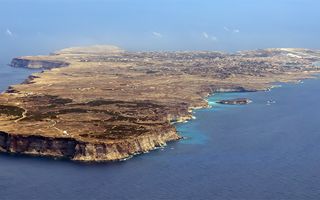(Finance) – Solutions to reduce energy spending on small Italian islands, protecting the environment, safety and well-being of homes. This is the objective of the project that ENEA has launched as part of the program activities Electrical System Research which promotes energy efficiency as a tool for decarbonisation of the energy system. “In the small islands of the Mediterranean, the production of domestic hot water and air conditioning have a significant impact on energy demand, both in the residential and tourist sectors. Recent studies have shown that approximately 40% of the electricity consumption of residential users is in fact attributable to the production of hot water, with significant peaks during the tourist season”, he explains Biagio Di Pietrahead of the ENEA Laboratory Integrated Solutions for Energy Efficiency.
“The analyzes conducted at Lampedusa together with the University of Palermo – continues Di Pietra – they have also shown that almost all residential users use electric water heaters”.
To study systems that can guarantee complete self-sufficiency in the production of domestic hot water in small islands, it was tested at theENEA Climate Observatory of Lampedusa an innovative system hybridcomposed of a small-scale photovoltaic system (1.74 kWp), a hybrid inverter, a heat pump with 200 liter storage and a 3.6 kWh supercapacitor storage system.
The objective of this experimental campaign is to identify the minimum size of the photovoltaic system in combination with the pump of heat to allow high self-sufficiency in the production of hot water, as well as determining the mix between electrical and thermal energy storage to make the entire system more efficient, from production to energy consumption.
“In the electricity networks of small islands, which are smaller in size, it is more complex to manage the intermittency of generation from renewables, as well as peaks in demand,” he explains Francis Baldi of the ENEA Laboratory Integrated solutions for energy efficiency. “To overcome this problem we have used systems that automatically regulate the input of electricity generation into the grid, programming the loads thanks to thermal accumulations and smart devices, controlled by the system and not by the user, who is still guaranteed maximum comfort “.
THE test allowed us to verify the capacity of the system to produce effectively waterfall hot when necessary, shifting the demand for electricity to peak production periods and minimizing exchange with the grid, with self-consumption values equal to 63% of the energy produced. The results also allowed us to identify some elements to improve to adapt the system to existing systems on the island and guarantee replicability in similar territorial contexts.
“Our research – continues Biagio Di Pietra – also touches on other aspects: in collaboration with the University of Palermo, a few years ago we started an experimental study at the Capo Grecale lighthouse in Lampedusa and at the Pantelleria media library aimed at testing systems for the air conditioning of environments of this type free solar cooling. Finally, with the aim of making citizens and businesses protagonists and beneficiaries of the energy transformation, a series of training and dissemination activities were organized in collaboration with local administrators, schools, electricity distributors and researchers”.
The investigations on systems innovative for the production of domestic hot water are just one of the activities carried out at the ENEA Climate Observatory in Lampedusa, dedicated to the study of climate change in the Mediterranean region, a fragile area and climate hotspot.
